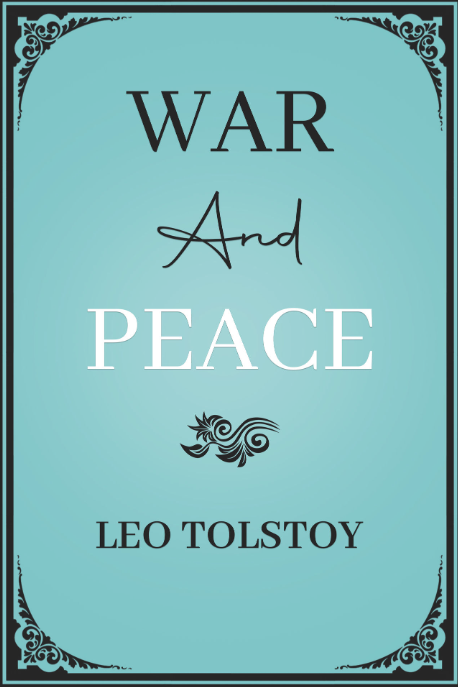Quotes from War and Peace by Leo Tolstoy

Quotes from War and Peace by Leo Tolstoy:
- We can know only that we know nothing. And that is the highest degree of human wisdom.
- The strongest of all warriors are these two — Time and Patience.
- There is no greatness where there is not simplicity, goodness, and truth.
- The whole world is divided for me into two parts: one is she, and there is all happiness, hope, light; the other is where she is not, and there is dejection and darkness…
- It's not given to people to judge what's right or wrong. People have eternally been mistaken and will be mistaken, and in nothing more than in what they consider right and wrong.
- You can love a person dear to you with a human love, but an enemy can only be loved with divine love.
- Man cannot possess anything as long as he fears death. But to him who does not fear it, everything belongs. If there was no suffering, man would not know his limits, would not know himself.
- A man on a thousand mile walk has to forget his goal and say to himself every morning, 'Today I'm going to cover twenty-five miles and then rest up and sleep.
- As long as there is life, there is happiness. There is a great deal, a great deal before us.
- Kings are the slaves of history.
- Here I am alive, and it's not my fault, so I have to try and get by as best I can without hurting anybody until death takes over.
- What is the cause of historical events? Power. What is power? Power is the sum total of wills transferred to one person. On what condition are the wills of the masses transferred to one person? On condition that the person express the will of the whole people. That is, power is power. That is, power is a word the meaning of which we do not understand.
- …everything comes in time to him who knows how to wait . . . there is nothing stronger than these two: patience and time, they will do it all.
- Tout comprendre, c'est tout pardonner.
- Life is too long to say anything definitely; always say perhaps.
- A battle is won by him who is firmly resolved to win it.
- Why does an apple fall when it is ripe? Is it brought down by the force of gravity? Is it because its stalk withers? Because it is dried by the sun, because it grows too heavy, or because the boy standing under the tree wants to eat it? None of these is the cause.... Every action of theirs, that seems to them an act of their own freewill is in the historical sense not free at all but is bound up with the whole course of history and preordained from all eternity.
- He did what heroes do after their work is accomplished; he died.
- It's too easy to criticize a man when he's out of favour, and to make him shoulder the blame for everybody else's mistakes.
- A man's every action is inevitably conditioned by what surrounds him and by his own body.
- I often think how unfairly life's good fortune is sometimes distributed.
- Man lives consciously for himself, but serves as an unconscious instrument for the achievement of historical, universally human goals.
